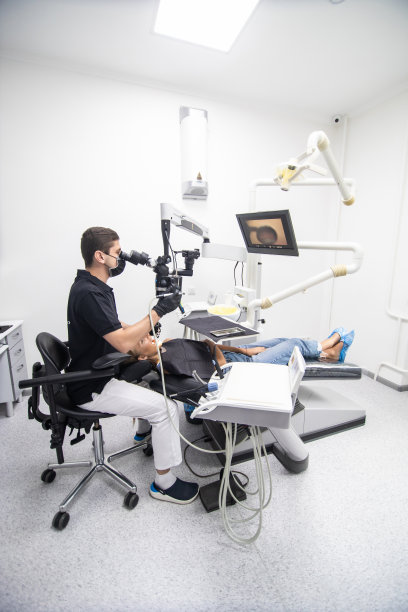Summary: Visiting the dentist for a filling appointment can be anxiety-inducing, but with the right precautions, you can ensure an optimal experience and maintain your oral health. This article outlines essential steps to take before and after your appointment, covering preparation strategies, effective communication with your dentist, post-treatment care, and lifestyle adjustments. Following these precautions will not only enhance the outcome of your dental fillings but also contribute to your long-term oral health. Being proactive in managing your dental care can help mitigate discomfort and lead to a smoother recovery process.
1. Preparing Wisely Before Your Appointment

Preparation is key when it comes to visiting the dentist for a filling. Start by ensuring you have a clear understanding of the procedure. Research typical filling materials and what might be suitable for your situation, which can help ease your anxiety. Understanding the process can make it feel less intimidating.
Next, consider scheduling your appointment at a time that feels comfortable for you. Whether you prefer morning or afternoon sessions, make sure it aligns with your routine so you arrive feeling relaxed. A less congested day can also lessen the potential for delays or long waits.
Its also wise to avoid eating heavy meals before your appointment. If local anesthesia will be used, a light snack beforehand can help maintain your energy levels. Make sure to disclose all medications you take to your dentist, as certain drugs can affect anesthesia and the overall procedure.
2. Communicating Effectively With Your Dentist
Clear communication with your dentist is crucial for a successful filling experience. During your appointment, convey any concerns or fears you may have about the procedure. A dentist who understands your worries can provide additional reassurance and adjust their techniques according to your comfort levels.
It’s important to discuss your medical history and any existing dental conditions with your dentist. Being open about allergies, past experiences, and preferences regarding anesthesia will help your dentist tailor the treatment to your needs. This kind of tailored care often leads to a better experience overall.
Finally, don’t hesitate to ask questions regarding the procedure, potential risks, and the recovery process. Knowing what to expect can ease anxiety and help you feel more in control. Understanding the filling material and the expected outcome can also enhance your confidence in the treatment.
3. Following Post-Treatment Care Guidelines
Right after your dental filling appointment, its essential to follow specific care guidelines. Avoid eating hard or chewy foods immediately after, especially if youre still under the effects of anesthesia. This can help prevent inadvertently biting your cheeks and gums or damaging the filling itself.
Maintain good oral hygiene practices immediately following treatment. While you should be gentle around the area where the filling was placed, it’s crucial to continue brushing and flossing regularly to remove plaque and promote healing. Using a fluoride toothpaste can enhance protection for your newly filled tooth.
If you experience any discomfort, use over-the-counter pain relievers as advised by your dentist. Its essential to monitor your recovery and consult your dentist if pain persists or increases, as this could signify complications that require attention.
4. Making Lifestyle Adjustments for Ongoing Health
To ensure long-lasting health for your filled teeth, making some lifestyle adjustments can be beneficial. Consider reducing your intake of sugary foods and beverages, which can contribute to tooth decay. Instead, incorporate foods rich in calcium and phosphorous to strengthen your teeth.
Regular dental check-ups should also be part of your routine. Visiting your dentist every six months allows for early identification of potential issues, ensuring that both filled teeth and your overall oral health are closely monitored.
Furthermore, consider lifestyle factors such as quitting smoking and managing stress, as these can impact your oral health. Finding better coping mechanisms, such as exercising or meditating, can improve your overall wellness and, in turn, benefit your dental health.
Summary:
In conclusion, being proactive about your dental filling appointment enhances your overall experience. By preparing adequately, communicating effectively with your dentist, adhering to post-treatment care, and making lifestyle adjustments, you can significantly improve your oral health and minimize anxiety associated with dental procedures. Remember, your oral health is a reflection of your overall well-being, and taking these essential precautions can lead to a brighter and healthier smile.
This article is compiled by Vickong Dental and the content is for reference only
Vickong Dental
Vickong Dental is a large medical group established in Hong Kong in 2008 by professors from well-known medical universities in Guangdong and Hong Kong, as well as medical doctors from key national '985' universities (including Master's supervisors and senior professors). The chain of branches brings together expert dentists with PhDs and Master's degrees from Hong Kong and Mainland China, committed to providing high-quality dental treatment.
"Vickong Dental Practices the University Motto of 'Healing and Serving Society,' with a Stable Operation for Sixteen Years. It Has Been honored with Hong Kong Enterprise Leaders's Choice,' and is a Global Trusted Implant Center for the Nobel Implant System. Recommended by Hong Kong Metro Broadcast and Guangdong Television, it Serves Customers from Over Thirty Countries and Regions, Gaining the Trust and Favor of Citizens from the Guangdong-Hong Kong-Macau Greater Bay Area and Surrounding Cities.

Thousands of customers' unanimous praise
The most recognized and highly recommended dental service by customers in the Guangdong-Hong Kong-Macau Greater Bay Area
We Ensure You Receive Detailed Care and Attention Here
Hong Kong standards, Shenzhen prices, Your Trusted English-speaking dentists

Vickong Dental Medical-Grade Instrument Disinfection Process
Vickong Dental Medical-Grade Instrument Disinfection Process

Vickong Dental Chain: A Warm and Comfortable Environment for Treatment






Appointment Hours

Q&A
Why choose Vickong Dental?
Vickong Dental practices the university motto 「Medicine to Benefit Society」, with each branch bringing together highly qualified dentists with doctoral and master’s degrees from Hong Kong and the Mainland, and has maintained seventeen years of steady operation。Recipient of 「2024 Hong Kong Enterprise Leaders Brand」, 「2025 Hong Kong Enterprise Leaders Brand」, a Nobel Biocare Global Trusted Implant Center, and a brand recommended by Metro Radio Hong Kong and Guangdong TV。
To date, we have served customers from more than thirty countries and regions,earning exceptionally high word-of-mouth recognition and trusted recommendations from residents across the Guangdong-Hong Kong-Macao Greater Bay Area and surrounding cities
We have eight major branches in Zhuhai、Shenzhen,and a consultation and service assurance center in Hong Kong,so you can book a free consultation at any time for any questions,which is very reassuring.
If I do not accept the quotation after the CT scan, will I be charged??
No! As long as the actual treatment has not started, you will not be charged any fees.
Will there be any additional charges during the treatment process?
No, there won’t be any additional charges. Before treatment begins, we will clearly explain the treatment plan and its corresponding fees. Only after the patient agrees and signs the consent form will we proceed with the dental service.
Can I pay in Hong Kong dollars?
Yes. Vickong Dental accepts payment in Hong Kong dollars. The amount will be converted based on the exchange rate of the day, and the applicable rate will be clearly communicated to you in advance.
Can I reschedule my appointment at any time?
Yes. Please contact us via **WeChat** or **WhatsApp** as early as possible, providing your original appointment time and details, along with your preferred new date and time slot for rescheduling.













